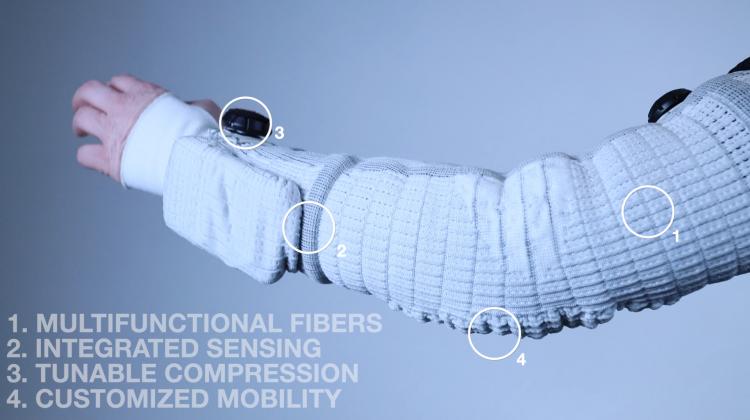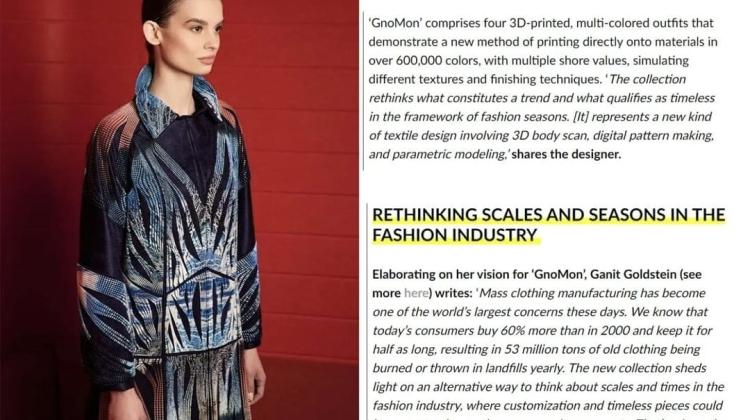Ganit Goldstein
Ganit Goldstein is a PhD student and Presidential Fellow in the Design Computation Group at MIT. Her work combines traditional textile craft with advanced fabrication technologies, including multi-material 3D printing, 3D scanning, and computational design to create 3D textiles that respond to the body and adapt to changing environments. Her current research investigates how smart textile methodologies can transform spacesuit engineering by integrating computationally responsive materials.
Ganit holds an MA in Textiles from the Royal College of Art (2021) and an SMArchS in Design Computation from MIT (2023). She has worked as a Research Assistant at the Self-Assembly Lab and was selected in 2022 as one of the inaugural fellows of the MIT Morningside Academy of Design.
Her projects have been presented at exhibitions and museums worldwide, including Milan Design Week, New York Textile Month, the Cheongju Craft Biennale, Munich Jewellery Week, and the TLV Biennale of Crafts & Design. She embraces an interdisciplinary approach to design and engineering - merging traditional and innovative techniques to explore the intersections of craft, technology, science, and art through pioneering research and global collaborations.






